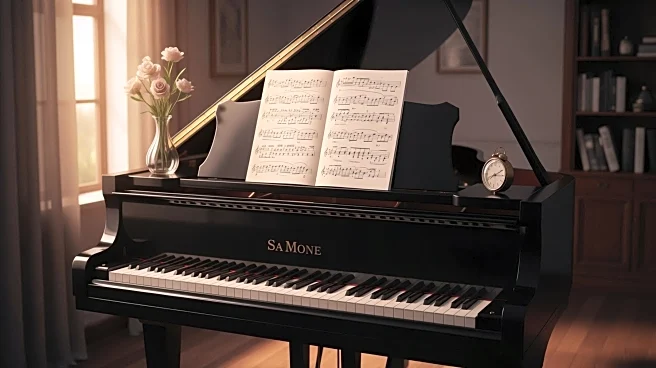What's Happening?
Nobuo Uematsu, the renowned composer for the Final Fantasy series, has expressed his reluctance to use artificial intelligence in music creation. In an interview with JASRAC Magazine, Uematsu acknowledged
AI's potential in gaming music transitions but emphasized his preference for creating music manually. He believes that the personal background of a composer adds depth to the music, a quality AI lacks. Uematsu highlighted the unique imperfections of live performances as a source of satisfaction, contrasting them with AI-generated music. Despite Square Enix's president advocating for AI's role in reshaping creative processes, Uematsu remains committed to traditional methods.
Why It's Important?
Uematsu's stance on AI in music creation underscores a broader debate within the gaming industry about the role of technology in creative processes. While AI offers efficiency and innovation, it raises concerns about the loss of human touch and authenticity in art. Uematsu's perspective highlights the value of personal expression and the unique qualities of human-created music, which could influence other artists and developers. As AI continues to integrate into various industries, the balance between technological advancement and preserving artistic integrity remains a critical discussion.
What's Next?
The gaming industry is likely to continue exploring AI's capabilities, with companies like Square Enix pushing for its integration. However, resistance from influential figures like Uematsu may lead to a more cautious approach, ensuring that AI complements rather than replaces human creativity. Developers and artists may seek ways to blend AI's efficiency with human artistry, potentially leading to new hybrid models of creation. The ongoing dialogue about AI's role in gaming and music will shape future industry standards and practices.
Beyond the Headlines
Uematsu's rejection of AI in music creation raises ethical questions about the authenticity of AI-generated art. As AI becomes more prevalent, the distinction between human and machine-created content may blur, challenging traditional notions of authorship and originality. This development could lead to legal and cultural shifts in how art is valued and protected, prompting discussions about intellectual property rights and the definition of creativity in the digital age.









